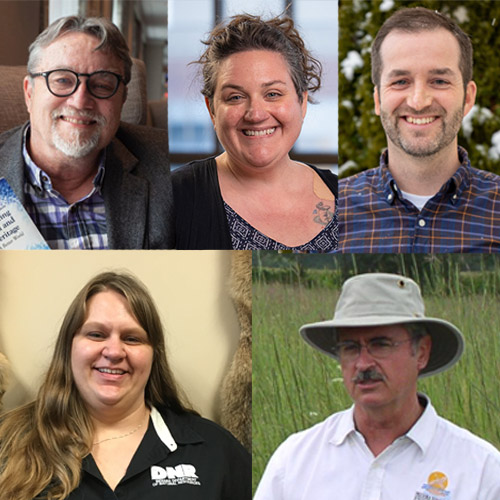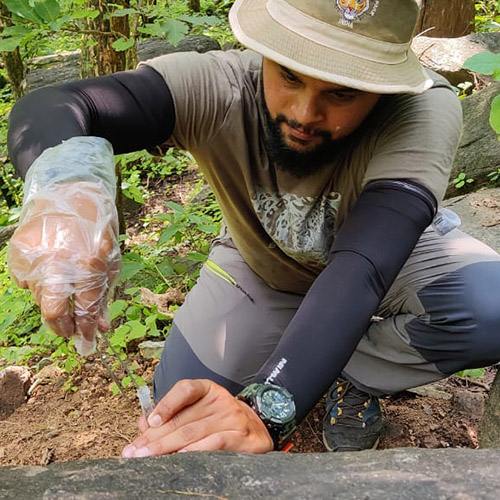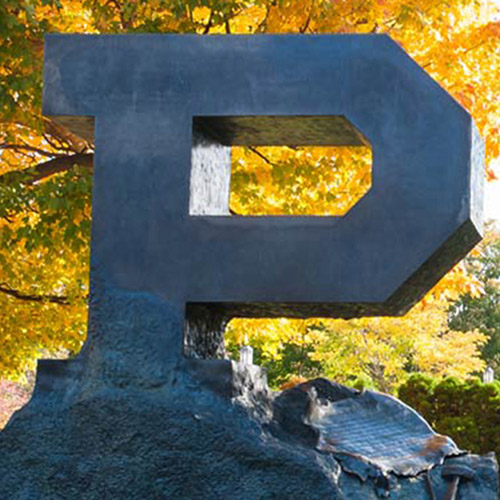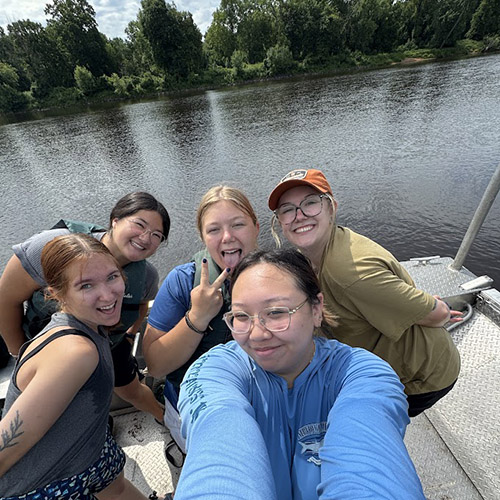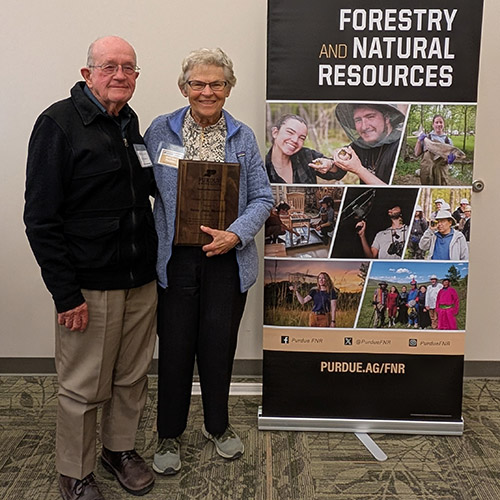Research - Wildlife Science
Advance understanding of wildlife species, populations, and communities, focusing on their roles in ecosystems and responses to environmental change.
Faculty:
Dr. Clement Bataille
Metal toxicology, megafauna mobility and dietary behavior, long-distance migratory insects ecology, Migratory fish ecology
Dr. Carolyn Burt
Digital ecology, applied ecology, animal behavior, light pollution
Dr. Andrew DeWoody
Population genetics, molecular ecology and evolution
Dr. Jason Hoverman
Herpetology, disease ecology, effect of multiple stressors on community dynamics
Dr. Liz Flaherty
Mammalian responses to habitat fragmentation, forest ecology, locomotion costs for arboreal and semi-arboreal mammals, stable isotope ecology, ecophysiology
Dr. Kyle Horton
Aeroecology and animal movement, nocturnal bird migration, weather radar and acoustic monitoring, ecological forecasting and climate impacts, artificial light and land use effects, and conservation applications of migration research.
Dr. Bryan Pijanowski
Land-use modeling & spatial ecology, ecological assessment, natural resource economic impact analysis
Dr. Patrick Ruhl
plethodontid salamanders, forest bird ecology, habitat, bioindicator ecology
Dr. Maria Sepulveda
Ecotoxicology, development and application of molecular biomarkers of exposure and effects to environmental contaminants in vertebrate and invertebrate animal models
Dr. Patrick Zollner
Behavioral ecology of ecological landscapes, forest management in changing landscapes, animal movements
Areas of Specialization:
- Quantitative Ecology
- Wildlife Management
- Restoration Ecology
- Conservation Biology
- Spatial Ecology
- Fragmentation Ecology
- Ecotoxicology
- Wildlife Nutrition
- Wildlife Physiology
- Human Wildlife Interactions
- Population Ecology
- Community Ecology
Learn More About Our Research
View our nine research areas along with our world-class faculty.
FNR research centers seek to support and enhance the research and partnership enterprise at Purdue University. The centers are valued and encouraged at Purdue as they create a venue for faculty to come together to pursue common goals. Forestry and Natural Resources have faculty and staff involved in six centers here at the University.
The Department of Forestry and Natural Resources maintains an impressive collection of state-of-the-art research and education facilities. These labs, green houses, and educational facilities are a fundamental component that enables our faculty and students to learn, make new discoveries, and engage our clients in using these discoveries to sustain our nation’s ecosystems and natural resources.
The mission of the Department of Forestry and Natural Resources is to develop and disseminate knowledge in the natural resource sciences associated with the protection, management, and sustainable use of terrestrial and aquatic ecosystems. One way the department accomplishes our mission is by owning and managing 24 properties located throughout the state to provide opportunities for research, extension, and education that achieves sustainable use of our natural resources.

